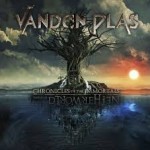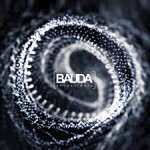 Fahran, suppotying Morpheus Rising at Bilston Robin 2
Fahran, suppotying Morpheus Rising at Bilston Robin 2
This is another of those blog posts inspired by some discussion on Twitter, in this case about support bands.
We’ve all been to gigs where the support band has been thoroughly forgettable; sometimes tuneless acoustic singer-songwriters, sometimes third rate generic metal or alternative rock bands. You do sometimes wonder what the point of these support slots are, especially if there’s not one but two supports which either means a disappointingly short headline set or a very late finish.
On the other hand, I’m sure most of us have seen a few occasions where an unknown support act has blown us away. I can think of The Computers supporting The Damned and giving them a serious run for their money, and Labyrinth kicking Sonata Arctica’s arse, both at my local venue in Reading. The very first time I saw the mighty Touchstone was when they supported The Reasoning at the now-closed Limelight Club in Crewe. And I’ll never forget Anne-Marie Helder supporting Mostly Autumn at the late lamented Astoria.
My rule when reviewing is to judge the support act on how you feel at the exact moment the frontperson says “And this is our last song”. That emotion never lies.
So what, exactly, is the purpose of the support band?
If, as was suggested, the sole purpose of the support is to make the headliner look good, I would respond by questioning whether the headliner is good enough to be topping the bill. The days of support bands being thrown off tours for being too good are long gone.
I see the role of the support act as enhancing the overall experience and giving the paying audience better value for money. If they’re a bit rubbish it rather undermines that. The 70s and 80s practice of the headliner actively sabotaging the support for reasons of ego by making sure they had terrible sound only shortchanges the punters.
Nowadays quite a few bands book a strong and complimentary support act and give them prominent billing in the gig’s promotion to boost ticket sales. Just how often have you gone to a gig purely to see the support, or at least had the support influence your decision to attend a gig? I could list a great many of those over the years; sometimes I’ve experience a wonderful headline set I would not otherwise have seen, and once or twice I’ve seen the band I’d actually come to see blow the headliners off stage.
So, what’s your experience of support acts? Who was memorably good, or memorably bad? What great bands did you first see as an opening act?

 You do wonder if their name might have held Germany’s Vanden Plas back. Back in the 1970s and 80s it was British Leyland’s badge for the top-end models of their memorably terrible cars from the worst days of the British motor industry. It’s like calling a band “Skoda” or “Edsel”.
You do wonder if their name might have held Germany’s Vanden Plas back. Back in the 1970s and 80s it was British Leyland’s badge for the top-end models of their memorably terrible cars from the worst days of the British motor industry. It’s like calling a band “Skoda” or “Edsel”. I’m no Labour supporter but I was willing to give Jeremy Corbyn a chance to revitalise the British left and shake up the establishment consensus. I’d hoped he’s galvanise a broad-based movement rather than retreat into sectarian zealotry. Unfortunately his appointment of Seamas Milne to the powerful post of communications director does not bode well.
I’m no Labour supporter but I was willing to give Jeremy Corbyn a chance to revitalise the British left and shake up the establishment consensus. I’d hoped he’s galvanise a broad-based movement rather than retreat into sectarian zealotry. Unfortunately his appointment of Seamas Milne to the powerful post of communications director does not bode well. Australian five-piece Caligula’s Horse take their name from a notorious episode in ancient Roman history when one of the most notorious early emperors made his favourite horse, Incitatus, a Senator. Incitatus means “at full gallop”, which is a good name for a band who play state-of-the art twin-guitar progressive metal, with serpentine riffs, memorable vocal melodies and some spectacular soloing.
Australian five-piece Caligula’s Horse take their name from a notorious episode in ancient Roman history when one of the most notorious early emperors made his favourite horse, Incitatus, a Senator. Incitatus means “at full gallop”, which is a good name for a band who play state-of-the art twin-guitar progressive metal, with serpentine riffs, memorable vocal melodies and some spectacular soloing.

 Bauda started out as a project from guitarist and songwriter César Márquez which then slowly evolved into a full band. The music is inspired and informed by the landscapes of their native Chile, and the album “Sporelights” revolves around “the perpetual struggles of men against the enslaving nature of modern societies”.
Bauda started out as a project from guitarist and songwriter César Márquez which then slowly evolved into a full band. The music is inspired and informed by the landscapes of their native Chile, and the album “Sporelights” revolves around “the perpetual struggles of men against the enslaving nature of modern societies”.